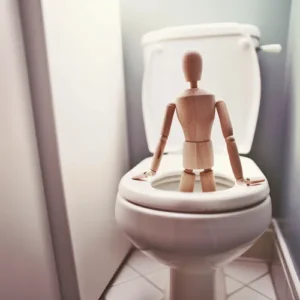I don’t suppose many people have heard of “Misophonia”? Nope, thought not … or maybe you have! As someone who has personally struggled with misophonia, I know firsthand how isolating and frustrating this condition can be. The sound of someone slurping their Starbuck’s latte or tapping their foot can send me into a rage or a panic, and it’s not something I can just “get over”. It drives me nuts. But that’s not just an old geezer being mardy, Misophonia is a real neurological disorder that can have a profound impact on daily life.
But here’s a fun fact: if you hate noise, you might just be a genius! According to the philosopher Arthur Schopenhauer, there’s a link between misophonia and intellect. He wrote, “Certainly there are people, nay, very many, who will smile at [my predicament], because they are not sensitive to noise; it is precisely these people, however, who are not sensitive to argument, thought, poetry or art, in short, to any kind of intellectual impression: a fact to be assigned to the coarse quality and strong texture of their brain tissues.”
So the next time someone gives you a hard time about your noise sensitivity, just tell them you can’t help being brilliant!
All jokes aside, the good news is that awareness of misophonia is growing here in the UK, and with that comes hope for better understanding and treatment options. Groups like Misophonia UK are working hard to support sufferers and educate the public about this often-misunderstood condition.
I recently listened to a fascinating BBC Radio 4 programme called “Misophonia, Mondegreens and Miscommunication” (available on BBC Sounds) that delved into the science behind misophonia. Host Chris Ledgard spoke with researchers and sufferers to shed light on this complex disorder. It was validating to hear my experiences reflected in the stories shared.
One thing that struck me was a quote from the Misophonia UK website: “Misophonia is one of the first fully-fledged diagnoses of the Internet age.” It’s true – online communities have been a lifeline for many of us struggling with misophonia. As the site notes, “A common refrain is ‘I thought I was the only one in the world, until I discovered my condition had a name. I’m so glad there are people out there who understand what I am going through. My family certainly don’t’.”
If you think you may have misophonia, know that you are not alone. Reach out to organisations like Misophonia UK for support and resources. Talk to your GP, even if they aren’t familiar with the condition. As the Misophonia UK site advises, coping strategies like “talking over what is an intensely personal condition with those most affected” and “allowing the sufferer to avoid intensely problematic situations such as family mealtimes” can be helpful. Earplugs or white noise can also be useful tools for managing triggers.
It’s not always easy, but with the right support and strategies, it is possible to thrive with misophonia. I have my ups and downs, but connecting with others who get it has made all the difference. As Misophonia UK puts it, “With greater public awareness, some of that isolation can be addressed.”
So to my fellow misophonia sufferers, I say this: keep advocating for yourself. Keep seeking out resources and support. And most importantly, keep holding onto hope. Change is coming, slowly but surely. Together, we can break down the stigma and create a world where misophonia is recognised and properly supported.
And hey, if Schopenhauer was right, at least we’re in good company with all those geniuses who couldn’t stand noise either!
To the researchers, medical professionals, and advocates working to improve life for those with misophonia – thank you. Your efforts mean more than you know.
And to anyone who wants to learn more, check out the Misophonia UK website or give that Radio 4 programme a listen. The more we educate ourselves and others, the better we can support our loved ones with misophonia and work towards a brighter future for all affected by this challenging condition. Together, we’ve got this.
Here are some general tips for managing misophonia:
- Identify your triggers and create a plan for dealing with them. This might involve leaving the room, using earplugs, or playing white noise.
- Practice self-care. Engaging in activities that reduce stress and promote relaxation, like exercise, meditation, or hobbies, can help you better cope with misophonia.
- Communicate with loved ones. Share what you’re going through and what they can do to support you. Misophonia UK suggests “talking over what is an intensely personal condition with those most affected.”
- Seek professional help. A therapist or counsellor experienced in misophonia can help you develop coping strategies and work through the emotional impact of the condition.
- Join a support group. Connecting with others who understand what you’re going through can be incredibly validating and helpful. Look for online or in-person misophonia support groups.
- Advocate for yourself. Don’t be afraid to speak up about your needs, whether it’s asking for accommodations at work or school or educating others about misophonia.
Remember, everyone’s experience with misophonia is different. What works for one person may not work for another. Be patient with yourself and don’t hesitate to reach out for help when you need it. With the right tools and support, it is possible to live a full and happy life with misophonia – and maybe even embrace your inner genius!
Photo “Misophonia: The Invisible Struggle of a Sensitive Genius?” by Anthony Cunningham for Zoom Health
Zoom Health is a leading UK supplier of Home Health Tests and Earplugs





